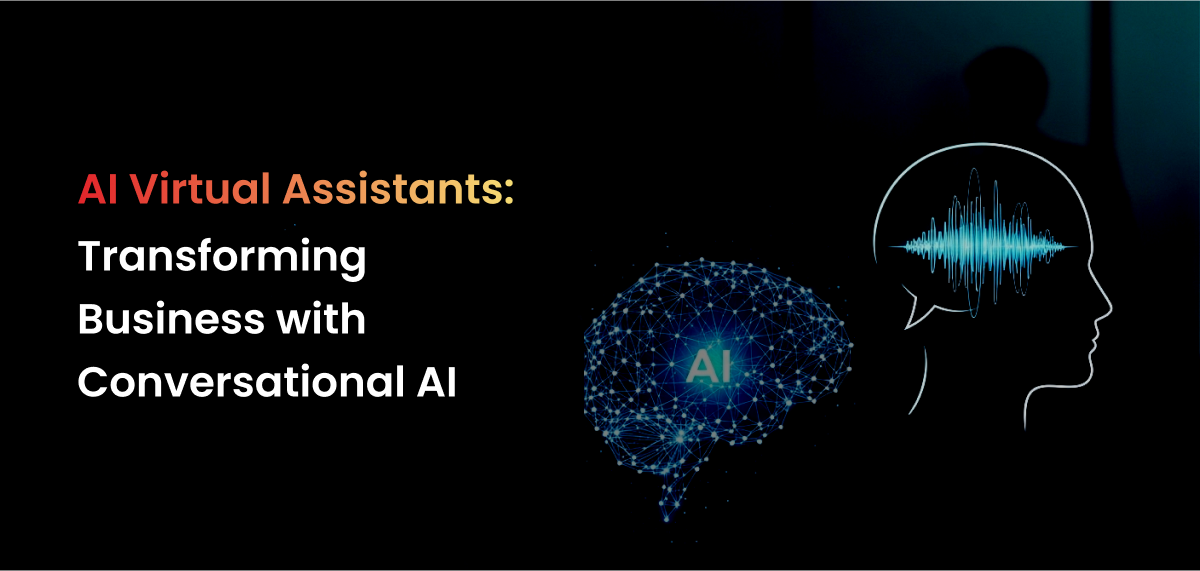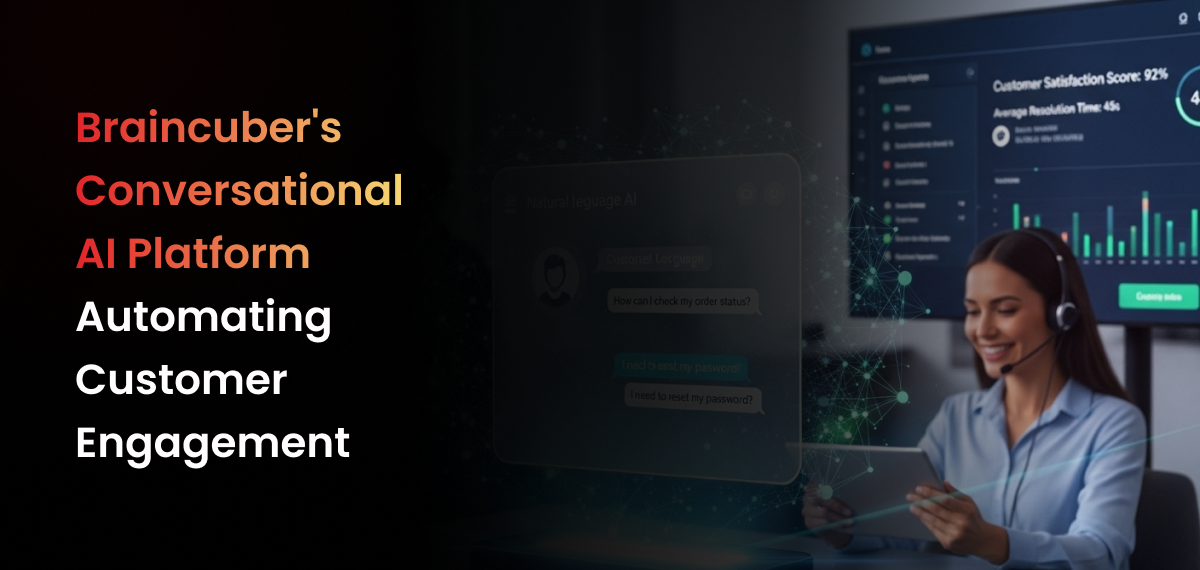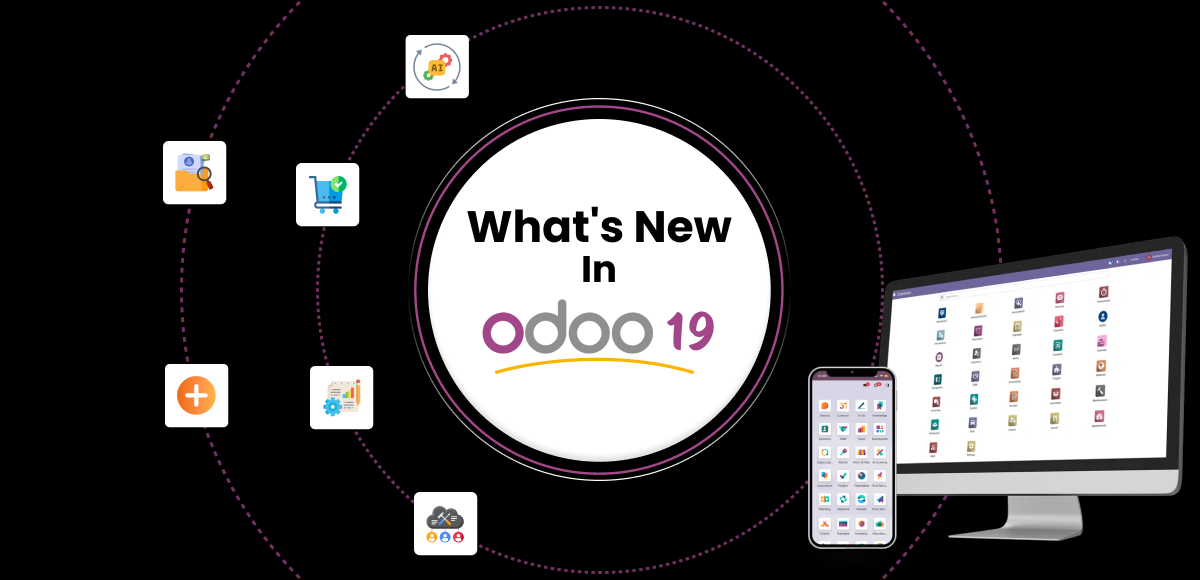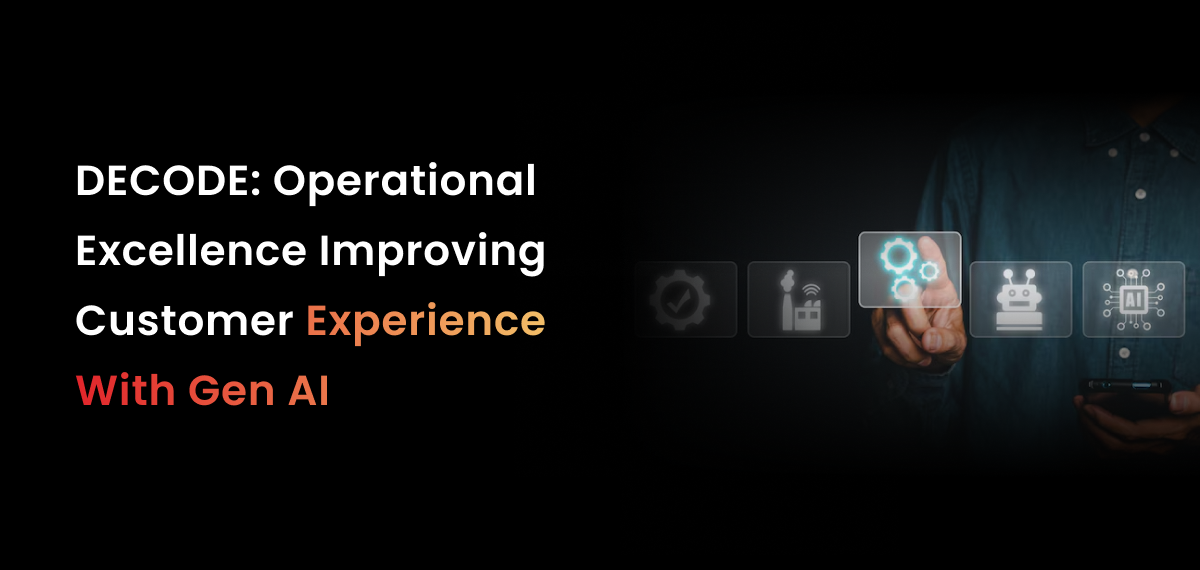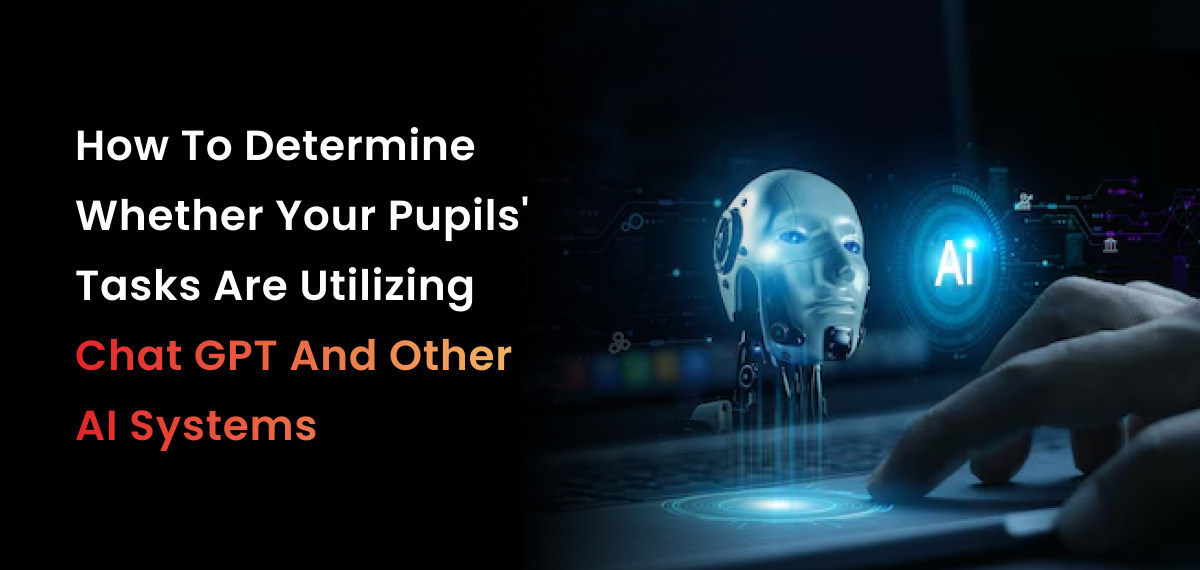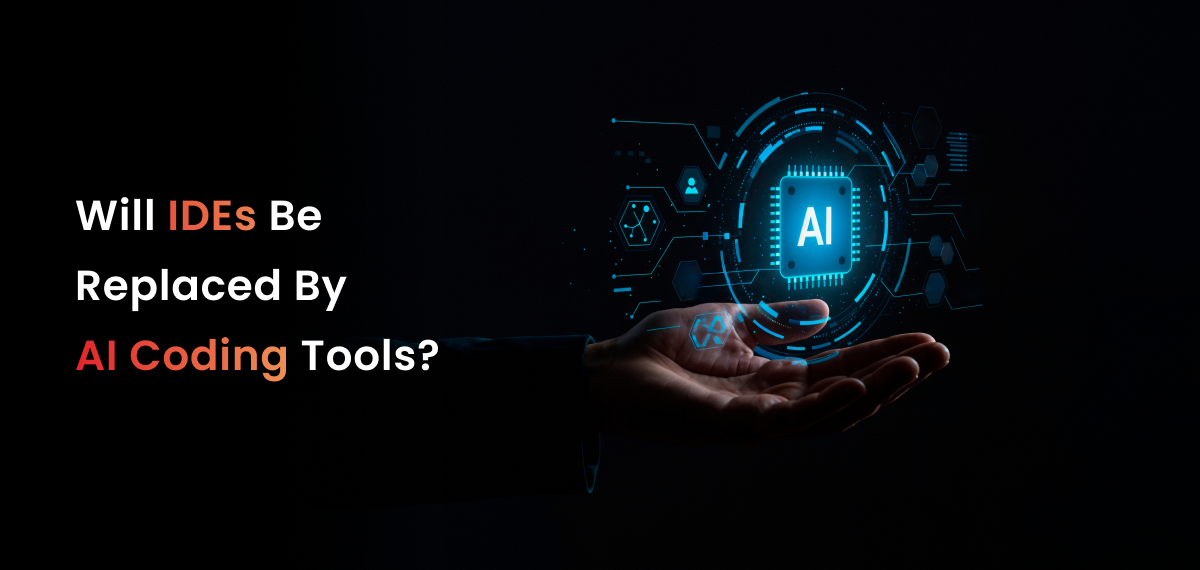AI virtual assistants are changing how businesses operate by automating tasks, improving productivity, and offering round-the-clock customer support. These intelligent systems can handle routine inquiries, allowing employees to concentrate on more strategic activities, which leads to greater efficiency and customer satisfaction.
Braincuber is actively developing a Conversational AI platform designed to automate customer engagement for enterprises and SMBs. This platform aims to provide businesses in the USA and Canada with advanced tools to streamline communication and improve overall operational effectiveness.
Key Takeaways
- AI virtual assistants automate tasks, improve customer service, and reduce operational costs for businesses.
- Key capabilities include customer service automation, appointment scheduling, data entry, lead generation, and personalized customer experiences.
- Implementing AI virtual assistants leads to improved efficiency, reduced operational costs, enhanced customer experience, and increased lead generation.
- AI virtual assistants are transforming industries like healthcare, e-commerce, finance, and manufacturing by automating tasks and improving operations.
- The future of AI virtual assistants involves advancements in NLP, personalization, and integration with other AI tools, leading to more sophisticated and integrated business workflows.
- Braincuber’s Conversational AI platform offers customizable solutions for businesses to leverage AI virtual assistants for improved customer engagement and operational efficiency.
Introduction to AI Virtual Assistants
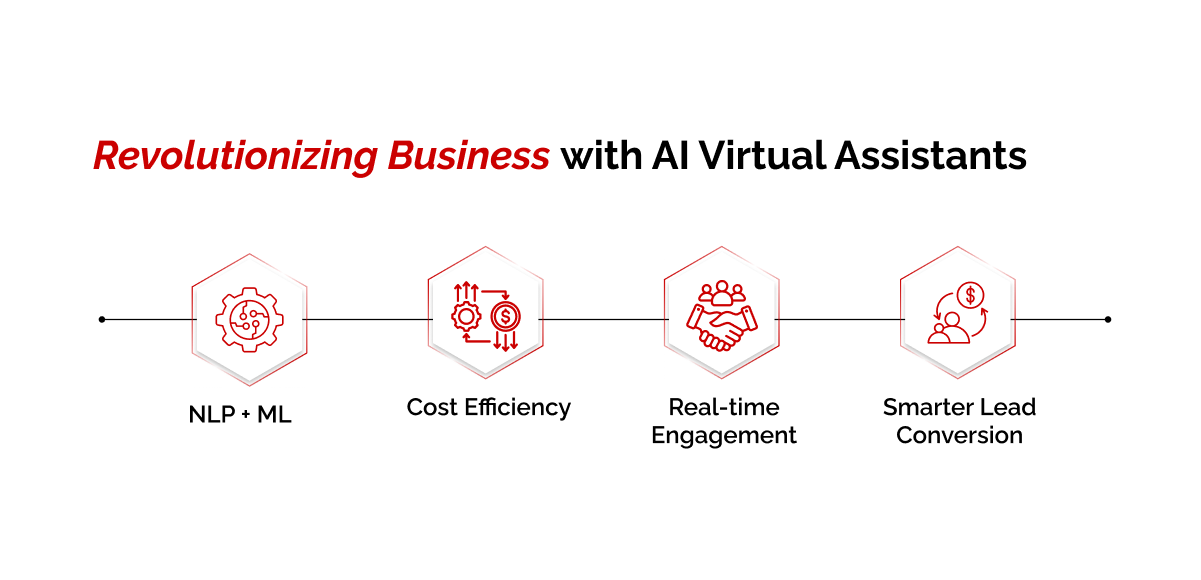
AI virtual assistants are computer programs that use artificial intelligence to provide assistance to users. These assistants have evolved from simple chatbots to sophisticated systems capable of interpreting and responding to complex queries. They are becoming increasingly important in business because they can automate tasks, improve customer service, and reduce operational costs.
Natural Language Processing (NLP) and Machine Learning (ML) are core technologies that enable AI virtual assistants. NLP enables these assistants to interpret human language, while ML allows them to learn from data and improve their performance over time.
Braincuber is developing a Conversational AI platform designed to automate customer engagement for enterprises and SMBs. This platform represents a next generation of AI, offering advanced capabilities for interpreting and responding to customer needs.
This article will explore the capabilities, benefits, and transformative impact of the AI virtual assistant on businesses. It will show how these technologies are changing the way companies operate and interact with their customers.
Key Capabilities of AI Virtual Assistants
AI virtual assistants can perform various functions that help businesses streamline their operations. One key area is customer service automation. An AI virtual assistant can answer frequently asked questions (FAQs) and resolve basic customer issues, reducing the workload on human agents. For example, companies use AI virtual assistants to provide instant support, answer product inquiries, and guide customers through troubleshooting steps.
Another important capability is appointment scheduling. AI virtual assistants can manage calendars, schedule meetings, and send reminders, saving time for both businesses and their clients. Many healthcare providers and service-based businesses use this to reduce no-shows and improve scheduling efficiency.
Data entry is another area where AI virtual assistants can provide value. They can automate the process of entering data into systems, reducing errors and freeing up employees for more important tasks. Businesses are using AI virtual assistants to automate invoice processing, update customer records, and manage inventory.
Lead generation is also improved by AI virtual assistants. They can engage potential customers through personalized interactions, qualify leads, and pass them on to sales teams. Some companies use AI virtual assistants to nurture leads through email campaigns and social media interactions.
AI virtual assistants also contribute to personalized customer experiences. By analyzing customer data, they can provide customized recommendations and support. E-commerce businesses use AI virtual assistants to suggest products, offer personalized discounts, and provide customized support based on past purchases.
These capabilities lead to significant efficiency gains and cost savings. By automating routine tasks, businesses can reduce labor costs and improve productivity. The use of an AI virtual assistant also contributes to better customer satisfaction by providing instant support and personalized experiences, which can lead to increased revenue.
Customer Service Automation
AI virtual assistants are transforming customer service by automating routine tasks. One of the primary functions of an AI virtual assistant is answering frequently asked questions (FAQs). By providing instant answers to common inquiries, businesses reduce the burden on human agents and improve response times.
AI virtual assistants can also resolve basic customer issues, such as resetting passwords, updating account information, and providing basic troubleshooting steps. This helps customers find quick resolutions without waiting for human intervention.
Providing 24/7 support is another key benefit. An AI virtual assistant ensures that customers can get help at any time, regardless of business hours. This is particularly valuable for businesses with a global customer base.
AI virtual assistants handle customer inquiries through various channels, including chat, email, and phone. For example, a customer can use a chat interface on a company’s website to ask a question and receive an immediate response from an AI virtual assistant. Similarly, AI virtual assistants can process email inquiries and provide relevant information or direct the customer to the appropriate resource.
This automation leads to a significant reduction in wait times. Customers no longer have to wait on hold or send emails and wait for a response. They receive instant support, which improves customer satisfaction. By automating these routine tasks, human agents are freed up to handle more complex issues that require human judgment and empathy.
Braincuber’s Conversational AI platform is designed to handle customer interactions efficiently. It can understand customer inquiries, provide relevant information, and resolve basic issues, allowing businesses to automate their customer service operations and improve customer satisfaction.
Appointment Scheduling and Management
AI virtual assistants streamline appointment scheduling and management through automated processes . One of the primary features is automated booking, where customers can schedule appointments online or through a virtual assistant interface without needing to speak to a human agent.
AI virtual assistants also send automated reminders to both customers and staff, reducing the number of missed appointments. These reminders can be sent via email, SMS, or other messaging platforms.
Rescheduling is another key feature. An AI virtual assistant allows customers to easily reschedule appointments without needing to call or email, providing flexibility and convenience.
This capability is particularly valuable in industries such as healthcare and professional services. Healthcare providers can use AI virtual assistants to manage patient appointments, send reminders, and handle rescheduling requests. Professional services firms, such as law firms and consulting companies, can use AI virtual assistants to manage client meetings and internal appointments.
The benefits include reduced no-shows and improved resource utilization. By sending reminders and allowing easy rescheduling, businesses can minimize missed appointments and make better use of their resources. AI virtual assistant systems can integrate with existing calendar systems and CRM platforms. This integration allows businesses to synchronize appointment data across different systems and gain a view of their operations.
Using an AI virtual assistant for appointment scheduling saves time and reduces administrative overhead, allowing staff to focus on other tasks.
Data Entry and Administrative Tasks
AI virtual assistants automate data entry and other administrative tasks, reducing the need for manual processes. One key function is processing invoices. An AI virtual assistant can extract data from invoices, such as invoice number, date, and amount, and enter it into accounting systems.
Updating customer records is another area where AI virtual assistants provide value. They can automatically update customer information in CRM systems based on new data or interactions. This ensures that customer records are always accurate and up-to-date.
AI virtual assistants can also generate reports. They can compile data from various sources and create reports on key performance indicators (KPIs), sales trends, and other metrics.
Compared to manual data entry, AI virtual assistants offer accuracy and efficiency gains. They reduce the risk of human error and process data faster than human employees. Businesses are using AI virtual assistants to reduce errors and free up employees for more strategic work. For example, accounting departments are using AI virtual assistants to automate invoice processing and reconciliation, allowing accountants to focus on financial analysis and planning.
AI virtual assistant systems have the potential for integration with ERP and accounting systems. This integration allows businesses to synchronize data across different systems and automate workflows. By automating data entry and administrative tasks, an AI virtual assistant helps businesses reduce costs, improve accuracy, and free up employees to focus on higher-value activities.
Lead Generation and Personalized Experiences
AI virtual assistants contribute to lead generation and personalized customer experiences by automating interactions and analyzing customer data. One key function is identifying potential leads. An AI virtual assistant can monitor website traffic, social media activity, and other data sources to identify individuals who may be interested in a company’s products or services.
AI virtual assistants can qualify leads through automated conversations. They can engage potential customers in conversations, ask questions to determine their needs and interests, and assess whether they are a good fit for the company’s offerings. This helps sales teams focus on leads who are most likely to convert.
Providing personalized product recommendations is another area where AI virtual assistants provide value. By analyzing customer data, such as past purchases and browsing history, they can recommend products that are relevant to each individual customer.
AI virtual assistants engage with website visitors and social media followers through various channels. For example, a virtual assistant can greet website visitors, answer their questions, and guide them to relevant content. On social media, AI virtual assistants can respond to comments and messages, share content, and participate in conversations.
These capabilities lead to increased lead conversion rates and improved customer engagement. By providing personalized experiences and engaging potential customers in meaningful conversations, businesses can improve their chances of converting leads into customers. AI virtual assistants analyze customer data to tailor interactions and offers. This personalization helps businesses build relationships with their customers and improve customer loyalty.
Using an AI virtual assistant for lead generation and personalization helps businesses improve their sales and marketing efforts and provide better customer experiences.
Benefits of Implementing AI Virtual Assistants in Your Business
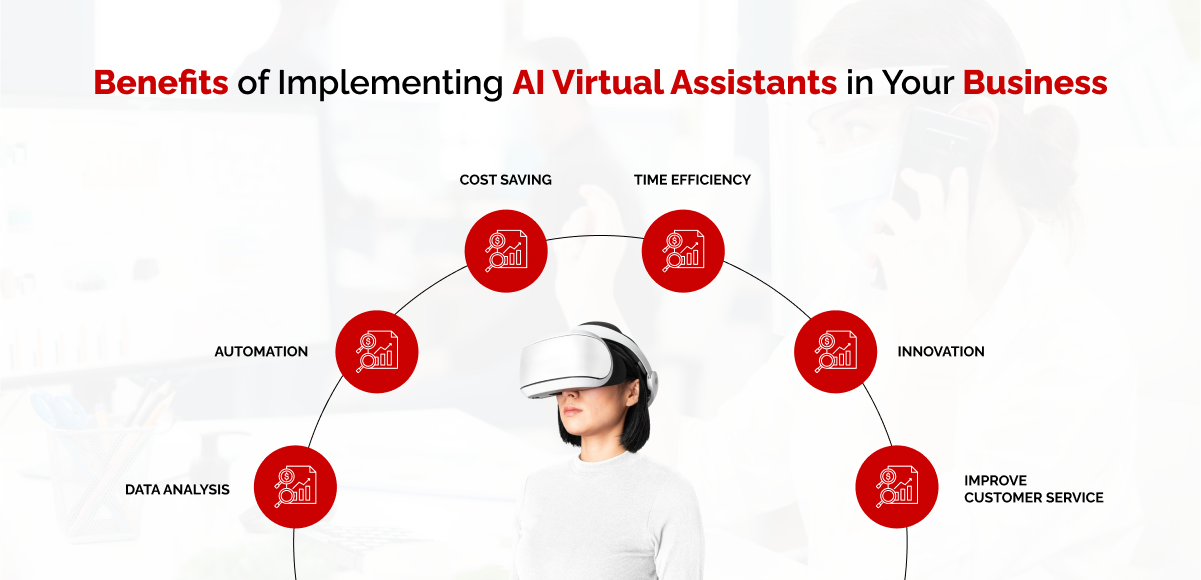
Implementing AI virtual assistants can lead to significant benefits for businesses across various sectors. One of the primary advantages is improved efficiency. AI virtual assistants automate routine tasks, allowing employees to focus on more strategic activities. Studies show that businesses automating tasks see efficiency gains of up to 30%.
Reduced operational costs are another key benefit. By automating customer service, data entry, and other administrative tasks, businesses can reduce labor costs and improve productivity. Reports indicate that companies can reduce operational costs by up to 25% by implementing an AI virtual assistant.
AI virtual assistants also contribute to an improved customer experience. By providing instant support and personalized interactions, businesses can improve customer satisfaction and loyalty. Data suggests that customers are more likely to do business with companies that offer personalized experiences.
Increased lead generation is another advantage. AI virtual assistants can identify potential leads, qualify them through automated conversations, and pass them on to sales teams. Companies using AI for lead generation see an increase in lead conversion rates.
Scalability is another key benefit. AI virtual assistants can handle a large number of interactions simultaneously, allowing businesses to scale their operations without needing to hire additional staff. This scalability is particularly valuable for businesses experiencing rapid growth.
Compared to traditional methods, AI virtual assistants offer advantages in terms of speed, accuracy, and availability. They can respond to inquiries instantly, process data accurately, and provide support 24/7. Traditional methods often involve longer wait times, higher error rates, and limited availability.
Braincuber’s Conversational AI platform addresses these benefits for enterprises and SMBs. It automates customer engagement, reduces operational costs, improves customer experience, increases lead generation, and provides scalability. The platform is designed to help businesses improve their operations and achieve their goals.
Improved Efficiency and Productivity
AI virtual assistants improve business efficiency and productivity by automating repetitive tasks. One key way an AI virtual assistant improves operations is by reducing manual errors. Automation minimizes the risk of human error, making sure data accuracy and consistency.
AI virtual assistants also improve response times. They provide instant answers to customer inquiries and automate routine tasks, reducing wait times and improving customer satisfaction.
Specific examples of how AI virtual assistants streamline workflows include automating invoice processing, updating customer records, and scheduling appointments. By automating these tasks, employees are freed up to focus on higher-value activities, such as strategic planning, problem-solving, and relationship-building.
Data points quantify these improvements. Studies show that businesses automating tasks see efficiency gains of up to 30%. For example, a company that automates its invoice processing can reduce processing time by 50% and reduce errors by 75%. These improvements translate into significant cost savings and increased productivity.
Braincuber’s Conversational AI platform contributes to these efficiency gains by automating customer engagement. It handles customer inquiries, resolves basic issues, and provides personalized support, allowing businesses to focus on their core competencies. The platform is designed to help businesses improve their operations and achieve their goals.
Reduced Operational Costs
AI virtual assistants help businesses reduce operational costs in several ways. One key area is reduced labor costs. By automating routine tasks, businesses can reduce the need for human employees, lowering salary expenses and benefits costs.
AI virtual assistants also lead to lower training expenses. Unlike human employees, AI virtual assistants do not require extensive training. They can be programmed to perform specific tasks and can be updated easily as needed.
Decreased infrastructure requirements are another benefit. AI virtual assistants can operate remotely, reducing the need for office space and equipment. This can lead to significant cost savings, particularly for businesses with remote or distributed workforces.
AI virtual assistants handle tasks more cost-effectively than human employees. For example, an AI virtual assistant can process invoices faster and more accurately than a human employee, reducing the risk of errors and saving time. In customer service, AI virtual assistants can handle a large volume of inquiries simultaneously, reducing the need for a large customer service team.
Data points and case studies demonstrate these cost savings. For example, a case study found that a company that implemented an AI virtual assistant for customer service reduced its customer service costs by 40%. Another study found that businesses automating data entry tasks reduced their data entry costs by 60%.
Braincuber’s solutions can help businesses optimize their operational expenses. By automating customer engagement, data entry, and other administrative tasks, Braincuber helps businesses reduce costs and improve efficiency. The company’s AI virtual assistant platform is designed to help businesses achieve their financial goals.
Improved Customer Experience
AI virtual assistants improve the overall customer experience through several key features. One of the most significant is providing 24/7 support. An AI virtual assistant ensures that customers can get help at any time, regardless of business hours, improving customer satisfaction and loyalty.
AI virtual assistants also offer personalized interactions. By analyzing customer data, they can provide recommendations and support that are relevant to each individual customer. This personalization helps businesses build stronger relationships with their customers.
Faster response times are another key benefit. AI virtual assistants can respond to customer inquiries instantly, reducing wait times and improving customer satisfaction. This is particularly important in today’s fast-paced business environment, where customers expect immediate responses.
AI virtual assistants handle customer inquiries and resolve issues more effectively than traditional methods. For example, an AI virtual assistant can answer frequently asked questions, troubleshoot basic problems, and direct customers to the appropriate resources. This automation frees up human agents to handle more complex issues and provide support to customers who need it most.
Data points and customer testimonials highlight these improvements. For example, a survey found that customers who interacted with an AI virtual assistant were more satisfied with the customer service experience than those who interacted with a human agent. Another study found that businesses implementing AI virtual assistants saw a 20% increase in customer satisfaction scores.
Braincuber’s Conversational AI platform improves customer satisfaction by providing personalized interactions and efficient support. The platform is designed to help businesses improve their customer service operations and build stronger relationships with their customers. An AI virtual assistant ensures a better overall experience.
Increased Lead Generation and Sales
AI virtual assistants contribute to increased lead generation and sales through automated and personalized interactions. One key function is identifying potential leads. An AI virtual assistant can monitor website traffic, social media activity, and other data sources to identify individuals who may be interested in a company’s products or services.
AI virtual assistants qualify leads through automated conversations. They engage potential customers in conversations, ask questions to determine their needs and interests, and assess whether they are a good fit for the company’s offerings. This helps sales teams focus on leads that are most likely to convert.
AI virtual assistants provide personalized product recommendations. By analyzing customer data, such as past purchases and browsing history, they can recommend products that are relevant to each individual customer. This personalization increases the likelihood of a sale.
AI virtual assistants engage with website visitors and social media followers to generate leads. For example, a virtual assistant can greet website visitors, answer their questions, and guide them to relevant content. On social media, AI virtual assistants can respond to comments and messages, share content, and participate in conversations.
Data points and case studies demonstrate these improvements. For example, a study found that businesses using AI for lead generation saw an increase in lead conversion rates. Another study found that businesses implementing AI virtual assistants saw a 10% increase in sales revenue.
Braincuber’s solutions can help businesses boost their sales and revenue. By automating lead generation, qualifying leads, and providing personalized product recommendations, Braincuber helps businesses improve their sales and marketing efforts. The company’s AI virtual assistant platform is designed to help businesses achieve their financial goals.
Scalability and Flexibility
AI virtual assistants provide businesses with scalability and flexibility, enabling them to adapt to changing conditions and growing demands. One key benefit is the ability to handle fluctuating workloads. An AI virtual assistant can scale up or down as needed to meet changing demands, without requiring additional staff or resources.
AI virtual assistants also adapt to changing customer needs. They can be programmed to handle new types of inquiries and tasks as needed, allowing businesses to respond quickly to evolving customer expectations.
AI virtual assistants allow businesses to expand operations without significant additional investment. They can handle a large volume of interactions simultaneously, enabling businesses to reach a wider audience without needing to hire additional staff or open new locations.
AI virtual assistants scale to meet peak demand and handle seasonal variations. For example, during the holiday season, an e-commerce company can use AI virtual assistants to handle a surge in customer inquiries and orders. After the holiday season, the company can scale down its AI virtual assistant operations to match the reduced demand.
Braincuber’s Conversational AI platform offers businesses the flexibility to adapt to evolving market conditions. The platform can be customized to meet the specific needs of each business, allowing them to respond quickly to changing customer expectations and market trends. An AI virtual assistant ensures operations can scale as needed.
Use Cases: How Different Industries are Leveraging AI Virtual Assistants
AI virtual assistants are being used across various industries to solve specific problems and improve operations. Here are some examples:
Healthcare
Healthcare providers use AI virtual assistants for appointment reminders, medication reminders, and preliminary diagnoses. An AI virtual assistant can send automated reminders to patients, reducing the number of missed appointments. They can also provide patients with information about their medications and answer frequently asked questions. Some healthcare providers are using AI virtual assistants to conduct preliminary diagnoses, asking patients about their symptoms and providing recommendations for treatment.
E-commerce
E-commerce businesses use AI virtual assistants for personalized product recommendations, customer support, and order tracking. An AI virtual assistant can recommend products based on a customer’s past purchases and browsing history. They can also provide customer support, answering questions about products, orders, and shipping. AI virtual assistants track orders and provide customers with updates on their delivery status.
Finance
Financial institutions use AI virtual assistants for fraud detection, customer service, and financial advice. An AI virtual assistant can monitor transactions for suspicious activity and alert customers to potential fraud. They can also provide customer service, answering questions about accounts, loans, and investments. Some financial institutions are using AI virtual assistants to provide customers with financial advice, such as budgeting tips and investment recommendations.
Manufacturing
Manufacturing companies use AI virtual assistants for predictive maintenance, quality control, and supply chain management. An AI virtual assistant can monitor equipment for signs of wear and tear and alert maintenance teams to potential problems. They can also inspect products for defects and ensure that they meet quality standards. AI virtual assistants manage supply chains, tracking inventory levels and coordinating shipments.
Braincuber’s expertise and potential solutions align with these use cases. The company’s Conversational AI platform can be customized to meet the specific needs of businesses in each of these industries. Whether it’s improving customer service in e-commerce or streamlining operations in manufacturing, Braincuber offers solutions that can help businesses achieve their goals.
Healthcare
AI virtual assistants are transforming the healthcare industry by automating tasks and improving patient care. One key use case is appointment scheduling. An AI virtual assistant can manage patient appointments, send reminders, and handle rescheduling requests, reducing the administrative burden on healthcare providers.
Medication reminders are another important application. AI virtual assistants send automated reminders to patients to take their medications, improving adherence and reducing the risk of missed doses. This is particularly valuable for patients with chronic conditions who need to take multiple medications.
AI virtual assistants are also being used for preliminary diagnoses. They can ask patients about their symptoms and provide recommendations for treatment, helping to triage patients and direct them to the appropriate level of care. This can improve patient outcomes and reduce wait times in emergency rooms.
Patient monitoring is another area where AI virtual assistants provide value. They can monitor patients’ vital signs and other data remotely, alerting healthcare providers to potential problems. This allows healthcare providers to intervene early and prevent serious complications.
AI virtual assistants are improving patient outcomes and reducing administrative burdens for healthcare providers. By automating routine tasks and providing personalized support, they are helping to create a healthcare system that is more efficient and patient-centered.
Braincuber’s solutions could be applied in this sector to provide more efficient and personalized patient care. The company’s Conversational AI platform can be customized to meet the specific needs of healthcare providers, enabling them to automate tasks, improve patient outcomes, and reduce costs. An AI virtual assistant ensures streamlined processes and improved patient experiences.
E-commerce
AI virtual assistants are transforming the e-commerce industry by providing personalized experiences and automating customer interactions. One key use is personalized product recommendations. An AI virtual assistant analyzes customer data, such as past purchases and browsing history, to recommend products that are relevant to each individual customer. This increases the likelihood of a sale and improves customer satisfaction.
AI virtual assistants also provide customer support. They answer questions about products, orders, and shipping, providing customers with instant support and reducing the need for human agents. This improves customer satisfaction and reduces operational costs.
Order tracking is another area where AI virtual assistants provide value. They track orders and provide customers with updates on their delivery status, improving transparency and customer satisfaction.
AI virtual assistants are used for fraud detection. They monitor transactions for suspicious activity and alert businesses to potential fraud, helping to protect them from financial losses.
AI virtual assistants are enhancing the online shopping experience and driving sales. By providing personalized recommendations, instant support, and fraud protection, they are helping to create a more efficient and customer-friendly online shopping environment.
Braincuber’s expertise could benefit e-commerce businesses by providing customized AI virtual assistant solutions that meet their specific needs. The company’s Conversational AI platform can be used to automate customer interactions, provide personalized recommendations, and detect fraud. An AI virtual assistant ensures streamlined processes and improved customer experiences in e-commerce.
Finance
AI virtual assistants are being used in the finance industry to improve security, efficiency, and customer service. One key use case is fraud detection. An AI virtual assistant monitors transactions for suspicious activity and alerts financial institutions to potential fraud, helping to protect them from financial losses.
AI virtual assistants also provide customer service. They answer questions about accounts, loans, and investments, providing customers with instant support and reducing the need for human agents. This improves customer satisfaction and reduces operational costs.
Personalized financial advice is another area where AI virtual assistants provide value. They analyze customer data, such as income, expenses, and investment goals, to provide personalized financial advice. This helps customers make informed decisions and achieve their financial goals.
AI virtual assistants are used for transaction monitoring. They monitor transactions for compliance with regulations and internal policies, helping to prevent money laundering and other illegal activities.
AI virtual assistants are improving security and efficiency in financial operations. By automating routine tasks and providing personalized support, they are helping to create a more efficient and customer-friendly financial system.
Braincuber’s solutions could be applied in the financial sector to provide customized AI virtual assistant solutions that meet their specific needs. The company’s Conversational AI platform can be used to automate customer interactions, provide personalized financial advice, and detect fraud. An AI virtual assistant ensures streamlined processes and improved security in finance.
Manufacturing
AI virtual assistants are enhancing efficiency and safety in the manufacturing industry through various applications. Predictive maintenance is a key area. An AI virtual assistant monitors equipment for signs of wear and tear and alerts maintenance teams to potential problems before they cause downtime. This reduces maintenance costs and improves operational efficiency.
AI virtual assistants also optimize the supply chain. They track inventory levels, predict demand, and coordinate shipments, making sure that materials are available when needed and minimizing waste. This improves efficiency and reduces costs.
Quality control is another area where AI virtual assistants provide value. They inspect products for defects and make sure that they meet quality standards, improving product quality and reducing the risk of recalls.
AI virtual assistants are used to improve worker safety. They monitor worker behavior and identify potential safety hazards, helping to prevent accidents and injuries.
AI virtual assistants are improving operational efficiency and reducing downtime in manufacturing plants. By automating routine tasks and providing real-time insights, they are helping manufacturers to optimize their operations and improve their bottom line.
Braincuber’s expertise could benefit manufacturing companies by providing customized AI virtual assistant solutions that meet their specific needs. The company’s Conversational AI platform can be used to automate tasks, provide real-time insights, and improve worker safety. An AI virtual assistant ensures streamlined processes and improved safety in manufacturing.
The Future of AI Virtual Assistants and Braincuber’s Role

The future of AI virtual assistant technology is poised for growth, with advancements expected in Natural Language Processing (NLP), personalization, and integration with other AI-driven tools. NLP improvements will enable AI virtual assistants to understand and respond to human language with accuracy, making interactions more natural and efficient.
Personalization will allow AI virtual assistants to provide experiences based on individual customer preferences and behaviors. This will the effectiveness of customer interactions and loyalty.
Integration with other AI-driven tools, such as machine learning algorithms and predictive analytics, will enable AI virtual assistants to perform tasks and provide insights. This will help businesses make informed decisions and improve their operations.
AI virtual assistants are expected to become more sophisticated and integrated into business workflows. They will be able to handle tasks, provide personalized support, and automate processes. This will free up employees to focus on strategic activities and improve overall business efficiency.
Braincuber’s vision for its Conversational AI platform is to shape the future of customer engagement. The company is committed to innovation and providing AI solutions that meet the evolving needs of businesses. Braincuber’s platform is designed to be customizable and adaptable, allowing businesses to adapt to changing market conditions and customer expectations. Braincuber aims to be a leader in AI virtual assistant technology, helping businesses improve their operations and achieve their goals.
Conclusion
This article has explored the capabilities, benefits, and transformative potential of AI virtual assistants for businesses. AI virtual assistants automate routine tasks, improve customer service, and reduce operational costs.
Implementing AI virtual assistants offers several benefits, including improved efficiency, reduced costs, and customer experience. These benefits can help businesses improve their bottom line and gain a competitive edge.
Braincuber’s Conversational AI platform provides a solution for businesses looking to use AI virtual assistants. The platform is customizable and adaptable, allowing businesses to adapt to changing market conditions and customer expectations. Braincuber helps businesses improve their operations and achieve their goals.
Explore how an AI virtual assistant can benefit your specific business needs. Consider Braincuber as a partner in your AI implementation, helping you to implement solutions and achieve results.
Frequently Asked Questions
How do AI virtual assistants improve customer engagement for businesses?
AI virtual assistants enhance customer engagement by providing instant, 24/7 support, allowing businesses to respond to customer inquiries and issues in real time. They can handle multiple interactions simultaneously, reducing wait times and improving customer satisfaction. Additionally, these assistants can personalize interactions based on user data, making recommendations and providing tailored solutions that enhance the customer experience.
What industries are benefiting the most from AI virtual assistants?
While AI virtual assistants are versatile and applicable across various sectors, industries such as e-commerce, healthcare, finance, and customer service are experiencing significant benefits. E-commerce platforms benefit from streamlined purchasing processes and personalized product recommendations. Healthcare applications use them to assist with appointment scheduling and handle patient inquiries. In the finance sector, they support customers with account management and transactions, while in customer service, they efficiently resolve issues and answer FAQs.
What are the key features to look for in a conversational AI platform?
When evaluating a conversational AI platform, key features to consider include natural language processing (NLP) capabilities for understanding user intent, integration options with existing systems (like CRM and ERP), scalability to handle varying volumes of interactions, multilingual support for diverse customer bases, and analytics tools for tracking performance and user engagement. Robust security features are also crucial to protect sensitive customer data.
How can businesses measure the effectiveness of their AI virtual assistants?
Businesses can measure the effectiveness of AI virtual assistants through various metrics, including customer satisfaction scores, first response time, resolution rates, and engagement levels. Tracking the volume of interactions handled by the assistant versus human agents can also provide insights into its efficiency. Additionally, analyzing user feedback and monitoring improvements in customer retention can indicate the overall impact on business performance.
What challenges do companies face when implementing AI virtual assistants?
Companies may encounter several challenges when implementing AI virtual assistants, such as ensuring the technology integrates seamlessly with existing systems, training the AI to understand specific industry language and customer needs, and addressing privacy concerns related to data handling. Additionally, organizations must manage change within their workforce, as employees may need to adapt to new processes and collaborate with AI tools effectively.
